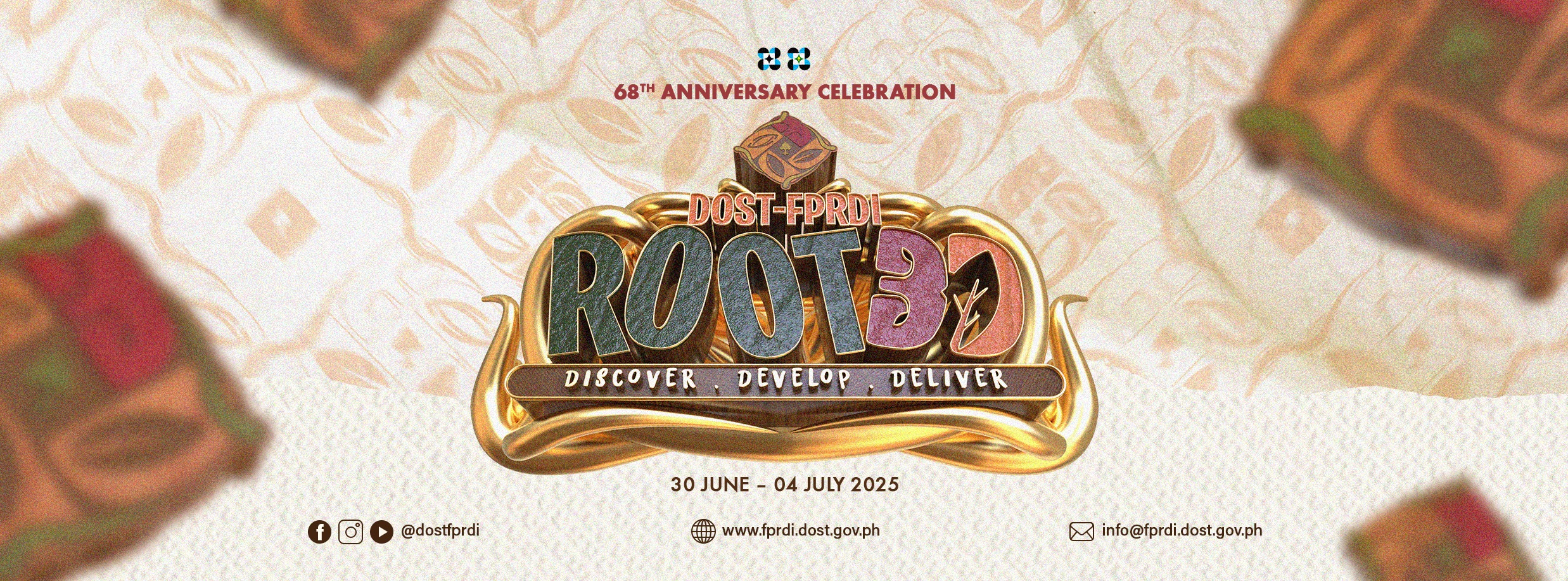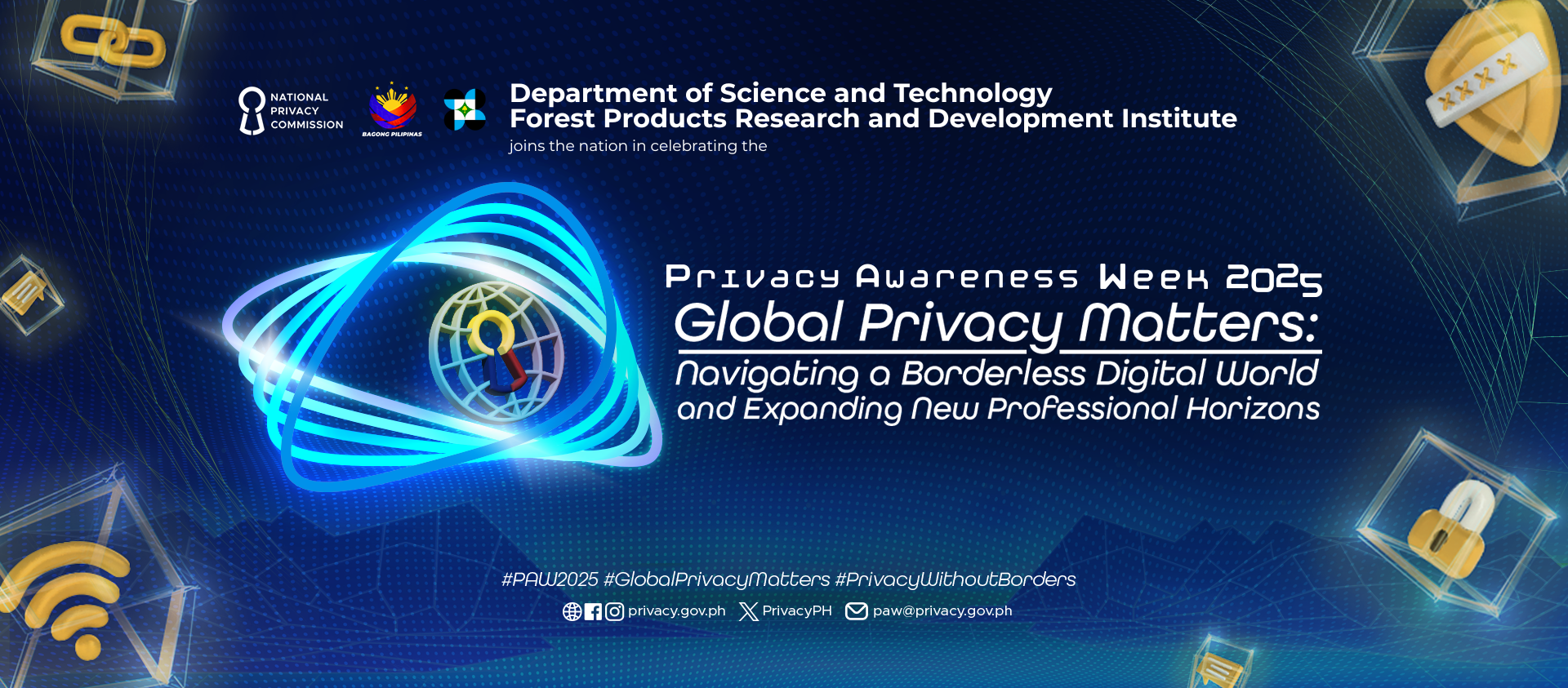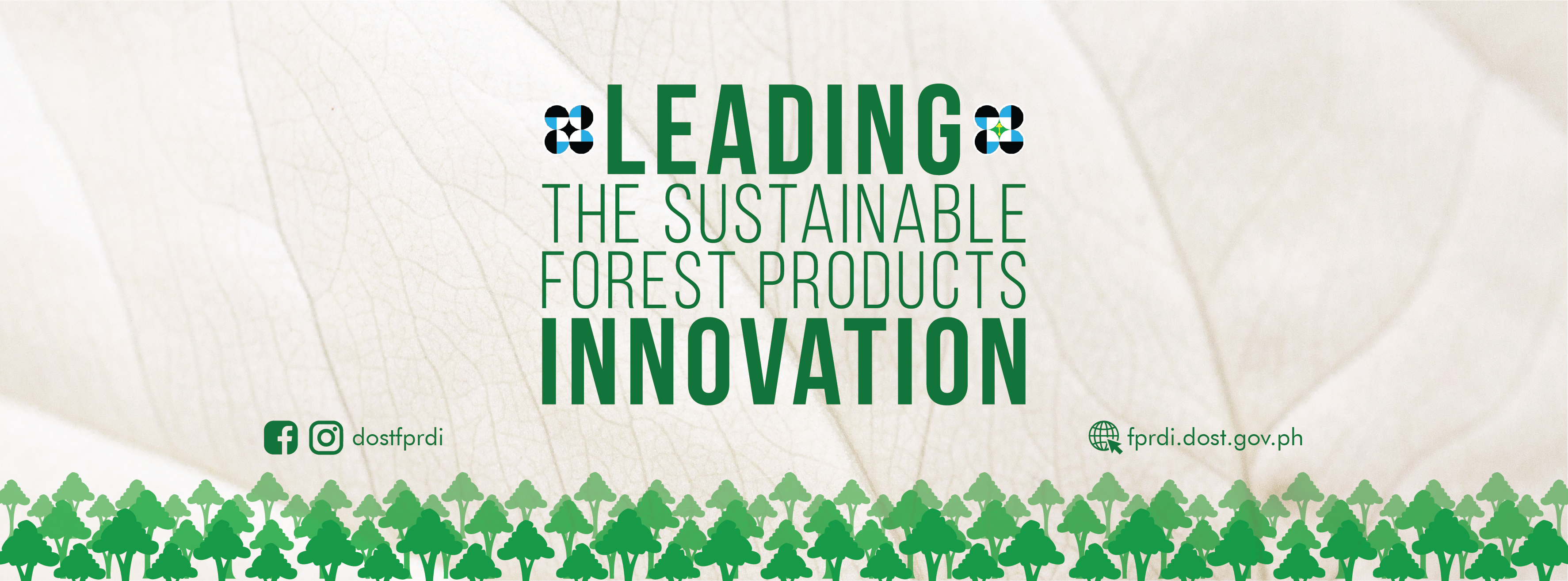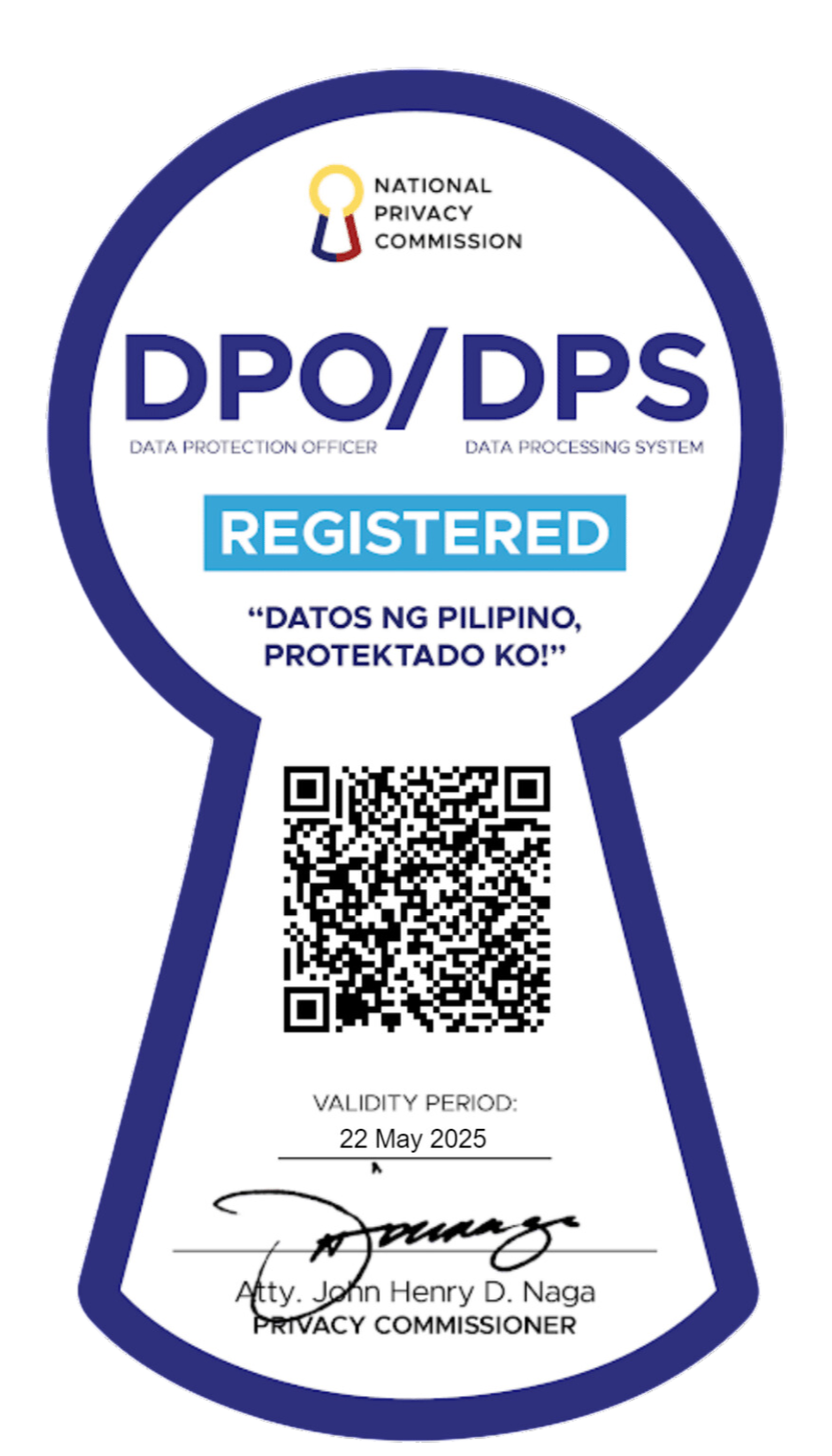The Department of Science and Technology (DOST) continues to extend its services to indigenous communities through training programs centered on sustainable practices.
The DOST- Forest Products Research and Development Institute (DOST-FPRDI) trained members of the Samahan ng mga Katutubong Nag-aalmaciga sa General Nakar, Quezon (SAMAKANA) and the Samahan ng mga Katutubong Agta Dumagat Remontado na Pinagtatanggol at Binabaka ang Lupaing Ninuno (SAGIBIN LN) on sustainable almaciga (Agathis philippinensis Warb.) resin extraction. The activity was held in Daraitan, Tanay, Rizal, in partnership with NTFP-EP Philippines (Non-Timber Forest Products-Exchange Programme) and the Department of Environment and Natural Resources (DENR) CALABARZON.
The same training was also held for members of the Higaonon Pamalihi CADT, Inc. of Misamis Oriental, benefitting 26 members of the Higaonon community.
The activity promoted the correct resin harvesting method, which is essential in securing an almaciga tapping and harvesting permit. During the training, Program Leader Forester Florena B. Samiano shared some innovative techniques developed under DOST-FPRDI’s Flavors and Fragrances from the Forests Technology Program.
“Through these trainings, we not only create livelihood opportunities for our indigenous communities but also help them become stewards of our natural resources. This effort demonstrates how science-based approaches can empower people and contribute to long-term environmental protection,” said DOST Secretary Renato U. Solidum, Jr.
Almaciga is a huge tree that is native to the Philippines and grows in the mountains of Quezon, Zambales, Palawan, Cagayan, Kalinga Apayao, Nueva Vizcaya, Samar, Zamboanga and Davao. The resin, which flows out of its bark, is used to make varnishes, lacquer, soap, paint, printing inks, floor wax, water-proofing materials, and other products. DOST-FPRDI has been an advocate of saving the country’s remaining almaciga trees by teaching tribal communities the correct way of resin tapping.
DOST-FPRDI also partnered with the UP Los Baños – College of Human Ecology (UPLB-CHE) to train members of the Ayta Magbukun community in Abucay, Bataan on bamboo craft making and basic finishing.
Owing to bamboo’s abundance in the area, their community mainly relies on selling raw bamboo poles for income. By learning basic crafting and finishing techniques, the participants were introduced to making higher-value bamboo products such as trays, lamps, and organizers using Buho (Schizostachyum lumampao) and Tinik (Bambusa blumeana), which they can sell at a higher price.
“Our work at DOST-FPRDI goes beyond research. We aim to create real, tangible opportunities for communities,” said Institute Director Rico J. Cabangon. “By teaching value-adding techniques for bamboo craft making, we help indigenous groups find new sources of income using locally available materials,” he added.
The DOST-FPRDI is the research and development arm of the DOST and is part of the Philippine government’s efforts to build a strong science and technology ecosystem in the country. It remains at the forefront of scientific research on wood and non-wood utilization and conservation, pioneering initiatives that promote the responsible use of forest resources while safeguarding biodiversity. For more information, please visit https://fprdi.dost.gov.ph/ or collaborate with DOST-FPRDI thru This email address is being protected from spambots. You need JavaScript enabled to view it.. ### (Glenn B. Manongsong, 05 May 2025)
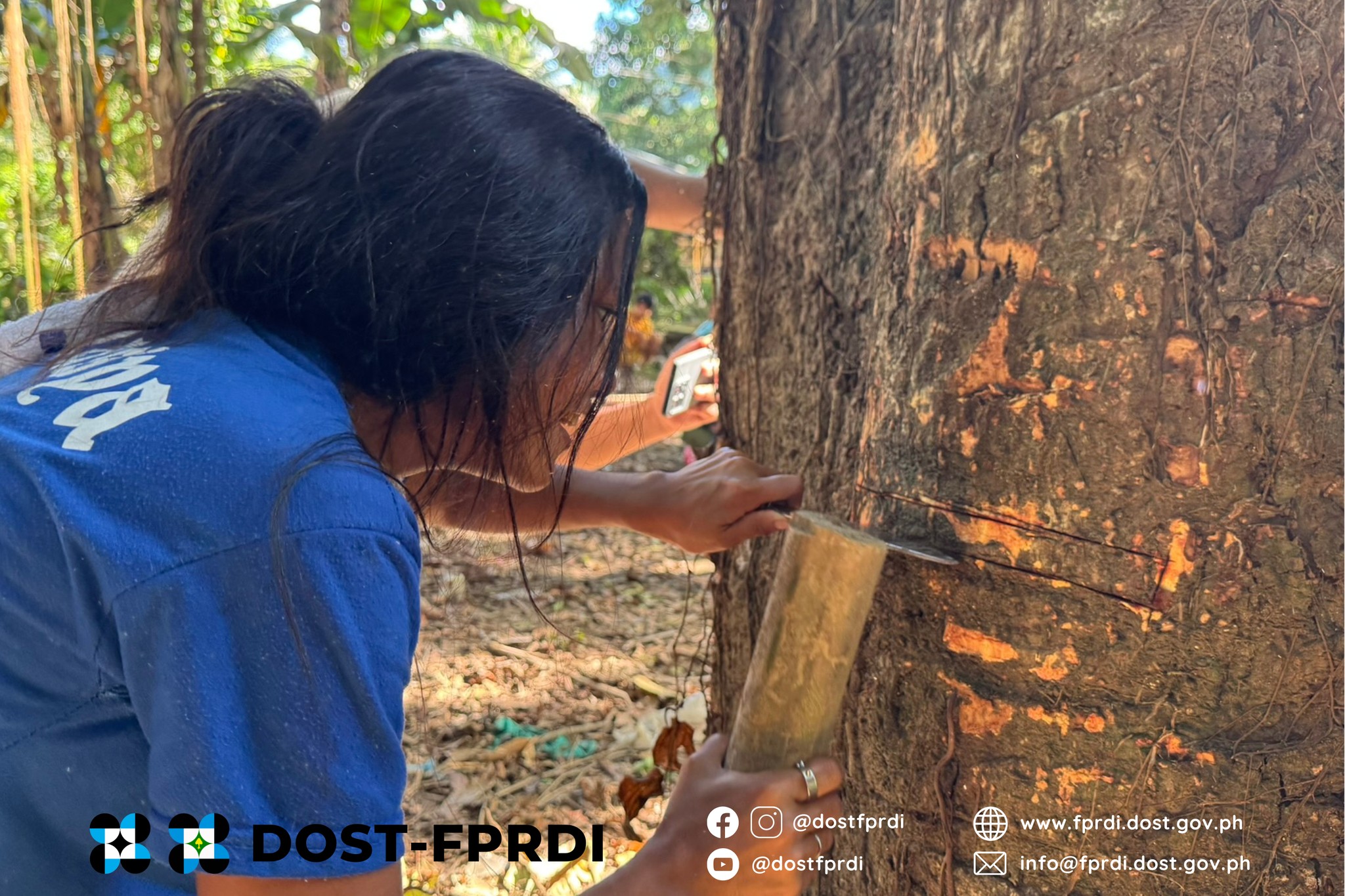
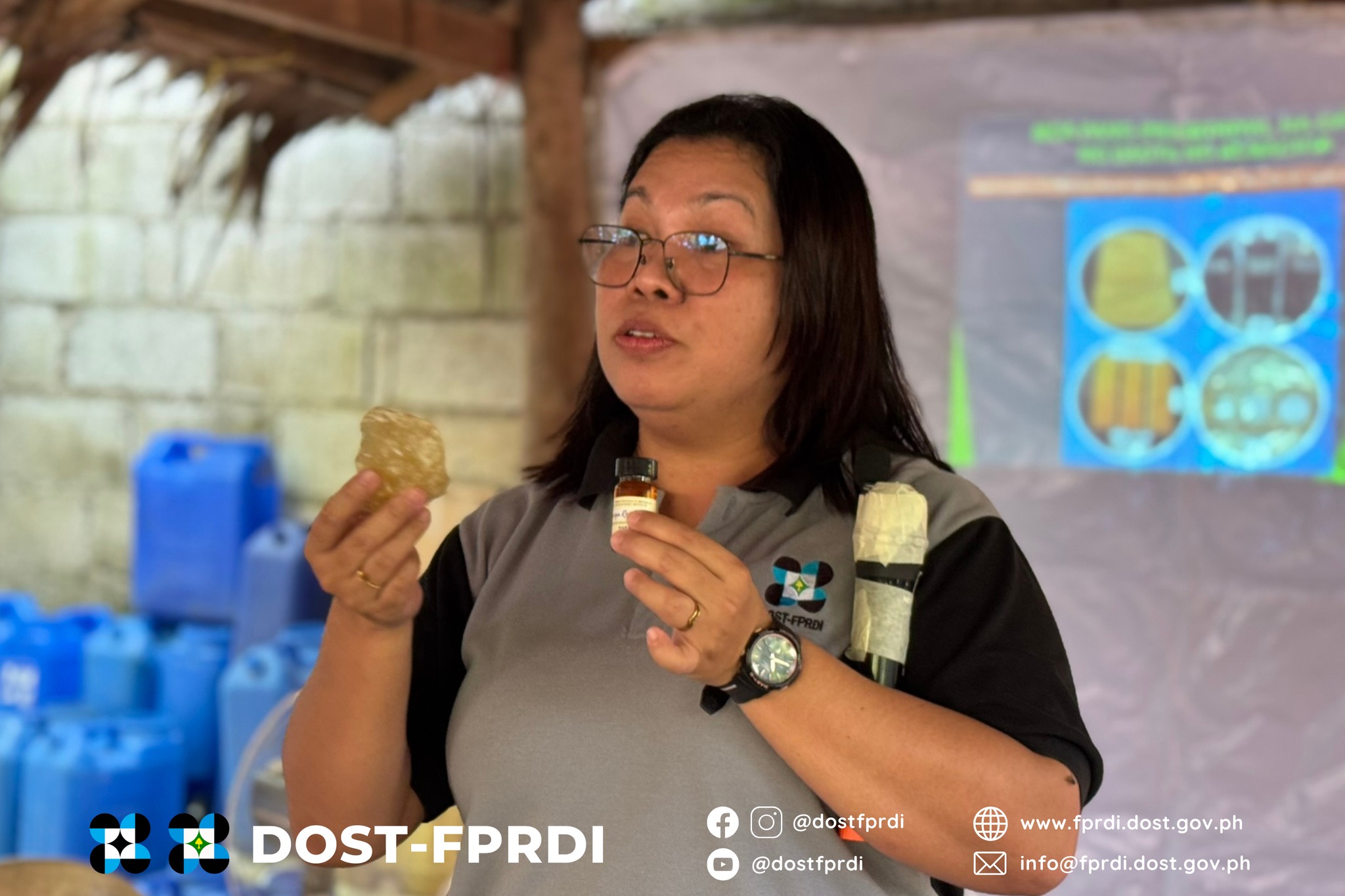
(Left) A member of the Dumagat Remontado community learns the sustainable way to harvest almaciga resin. (Right) Forester Samiano shares some resin tapping techniques during the training in Daraitan,Tanay, Rizal.
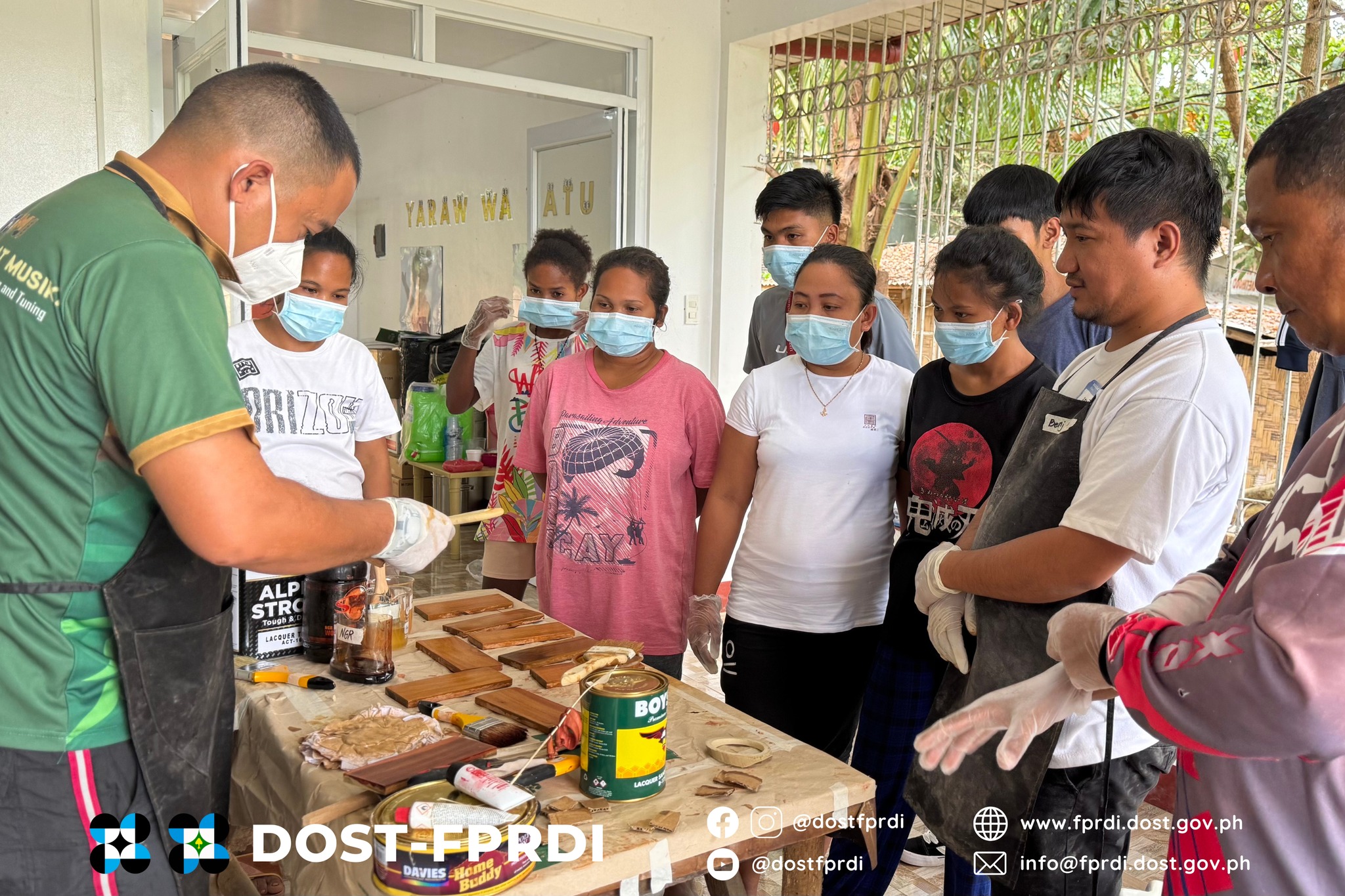
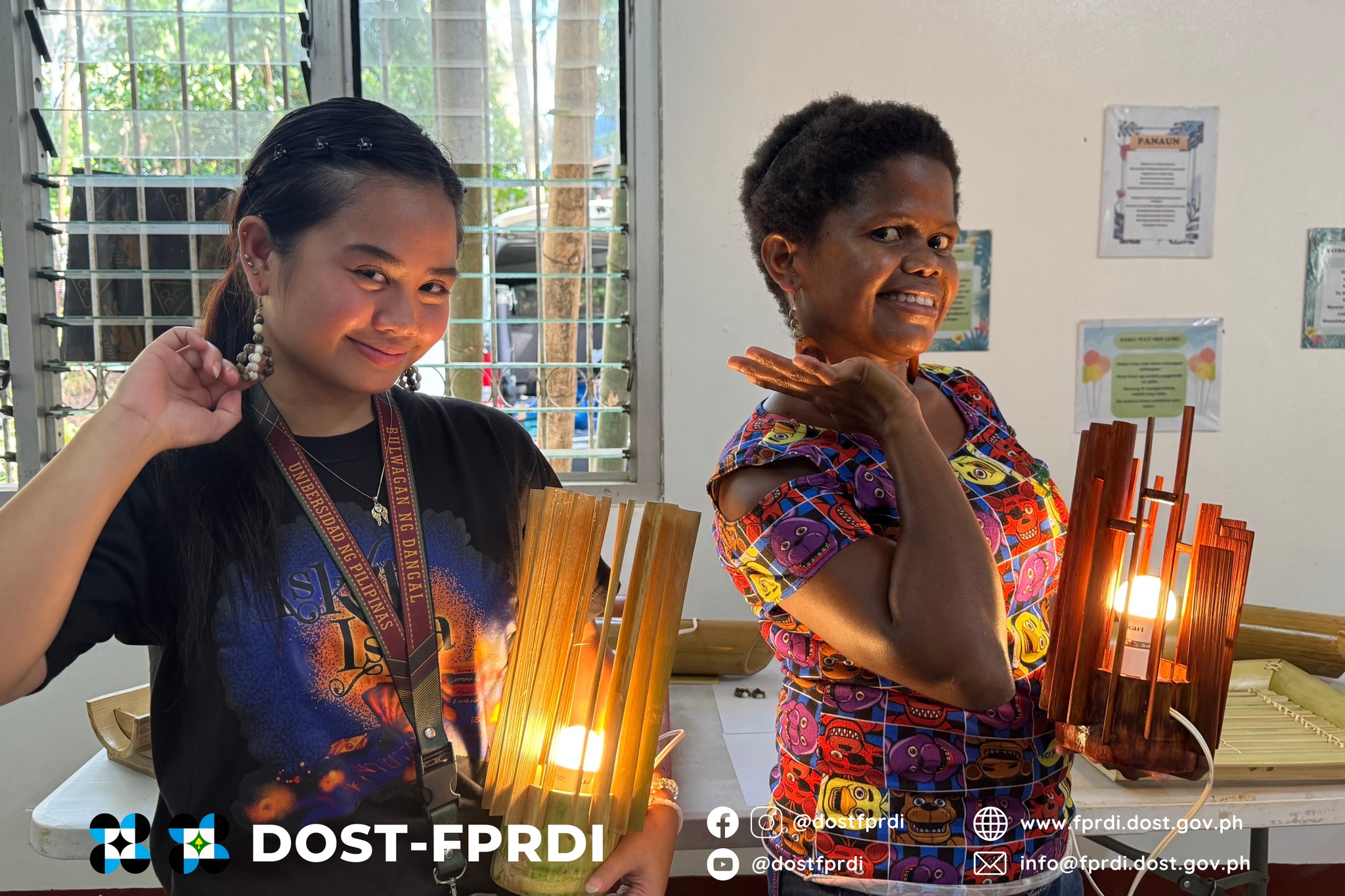
(Left) DOST-FPRDI staff demonstrates proper finishing application. (Right) Participants show some of the bamboo crafts produced during the training in Abucay, Bataan.

